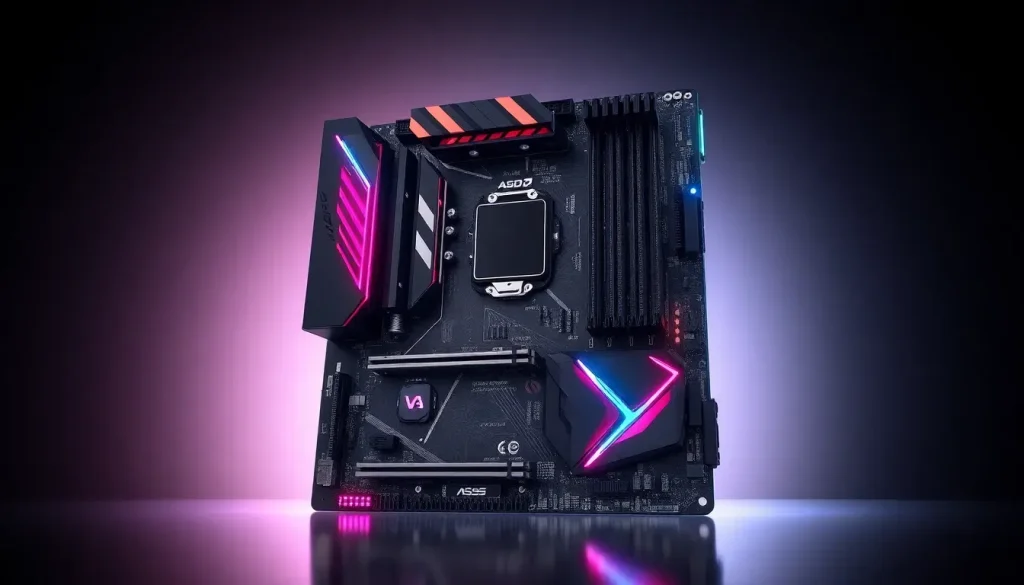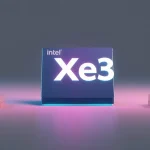ASUS announces AMD AM5 B850 motherboards support Zen 6 processors

In a significant move for the future of PC gaming and computing, ASUS has officially confirmed that its AM5 motherboards based on the AMD B850 chipset will support the upcoming Ryzen 10000 processors, which are built on the new AMD Zen 6 architecture. This announcement, made recently in China, sheds light on how ASUS and other manufacturers are preparing for the next generation of CPUs, indicating a broader trend in the industry towards enhancing motherboard capabilities.
Historically, BIOS chips have been relatively small, typically ranging from 16 MB to 32 MB. These chips contain the necessary code to initialize hardware, apply CPU microcodes, load integrated drivers, and manage system configurations. However, as new processors emerge, the need for additional microcode support has grown, highlighting a significant limitation of traditional BIOS sizes. With the introduction of larger BIOS chips, specifically those with a capacity of 64 MB, manufacturers can now accommodate more processors and enhanced features.
ASUS enhances its high-end B850 motherboards with 64 MB BIOS
Among the new offerings is the B850M AYW Gaming OC WIFI7 W motherboard, equipped with a robust 64 MB BIOS. This expanded capacity not only guarantees compatibility with the forthcoming AMD Zen 6 processors, successors to the current Ryzen 9000 series, but also opens the door for future enhancements.
ASUS isn't alone in this innovation; other manufacturers like MSI are also upgrading existing motherboards. By integrating a 64 MB BIOS, they can incorporate essential microcodes for future CPU support and include space for firmware updates without running out of memory. For instance, GIGABYTE is utilizing these larger chips in models like the X870 AORUS Stealth ICE to embed Wi-Fi drivers directly in the BIOS. This allows users to connect to Wi-Fi networks immediately after installing Windows 11, eliminating the need for a wired connection to download drivers.
The introduction of 64 MB BIOS chips is more than a technical upgrade; it represents a strategic marketing advantage. By promoting these enhanced features, ASUS can differentiate its products, making them more attractive to consumers who may otherwise perceive them as outdated. This shift is essential for ensuring that motherboards remain relevant as users look to upgrade their CPUs in the near future.
Setting the stage for affordable builds with AMD Ryzen 10000
Investing in a motherboard with a 64 MB BIOS may seem excessive at first, especially if you're considering building a PC for short-term use. However, this approach could be beneficial for users planning to upgrade their CPUs within the next few years. By purchasing a motherboard designed for future compatibility, users can save money on upgrades later on.
The arrival of the AMD Ryzen 10000 processors will bring forth a new generation of technology, prompting motherboard manufacturers to justify their pricing. As consumers weigh the benefits of new boards against existing models, those that offer enhanced features and support for future upgrades will become increasingly appealing.
When considering a new motherboard, potential buyers should evaluate several key factors:
- Future-proofing: Will the motherboard support upcoming CPU generations?
- Feature set: Does it include integrated Wi-Fi and other modern connectivity options?
- Price comparison: How does it stack up against older models in terms of cost and features?
- Brand reputation: Is the manufacturer known for reliable firmware updates and customer support?
By addressing these considerations, consumers can make informed decisions that align with their gaming or productivity needs, ensuring that their investment provides long-term value.
Understanding the AM5 socket and its implications
The AM5 socket is a pivotal component in AMD's strategy, designed to accommodate the Ryzen 7000 and future Ryzen 10000 series processors. This socket type offers several advantages over its predecessors, including support for advanced memory technologies and faster data transfer speeds.
The longevity of the AM5 socket is crucial for users looking to build or upgrade their systems. AMD's commitment to maintaining backward compatibility with future processors means that users can expect their AM5 motherboards to remain relevant for years to come.
Longevity and compatibility of the AM5 socket
As technology evolves, the lifespan of a socket becomes a significant consideration for PC builders. AMD has publicly stated that the AM5 socket will be supported for several generations of processors, allowing users to upgrade without needing to replace their motherboards. This strategy not only enhances the value of current AM5 motherboards but also encourages consumers to invest in AMD's ecosystem.
Take a look at some key points regarding the AM5 socket:
- Long-term support: AMD plans to support AM5 for at least five years.
- Compatibility: Users will be able to upgrade to newer processors without changing hardware.
- Performance enhancements: The AM5 socket supports faster RAM and improved data pathways.
As the computing landscape continues to change, the introduction of larger BIOS chips and enhanced motherboard capabilities marks an exciting chapter for gamers and tech enthusiasts alike. The combination of the AM5 socket and the upcoming Ryzen 10000 processors promises to deliver significant improvements in performance and compatibility, paving the way for advanced computing experiences.
For an in-depth look at the latest motherboards and their capabilities, check out this comparative review: The best ASUS motherboards in B850.




Leave a Reply